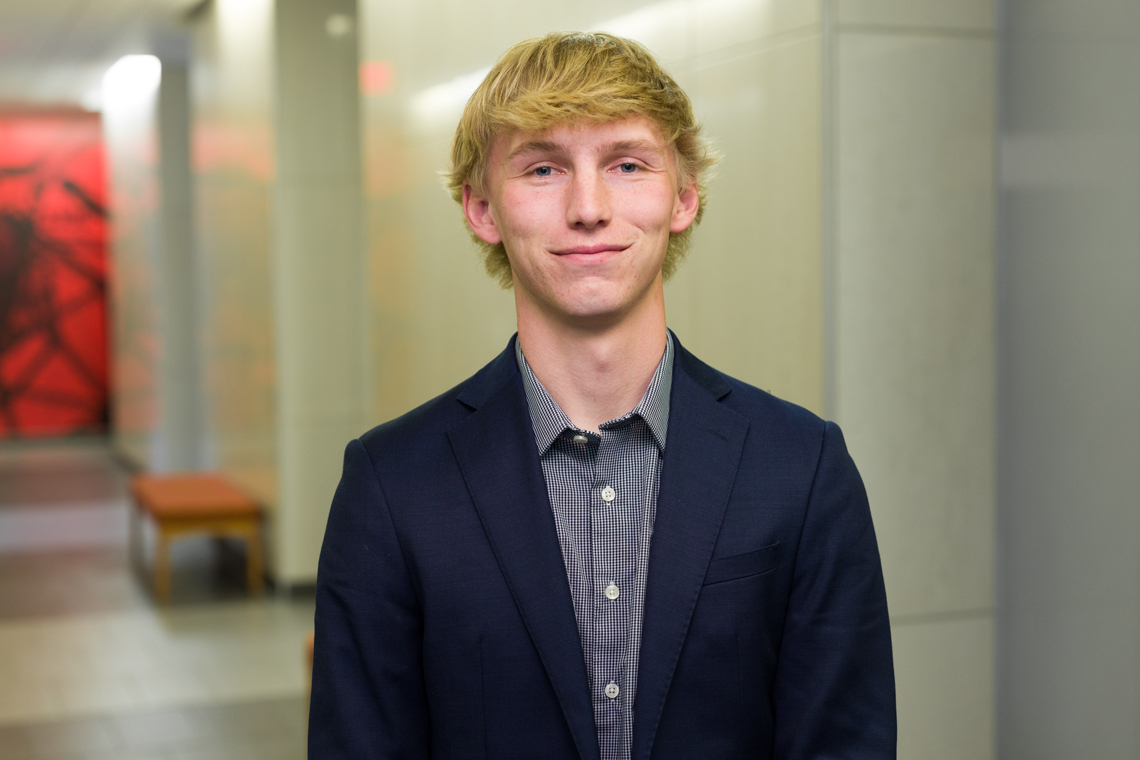Calvin Maples: Outstanding senior in environmental engineering
Author: Cyclone Engineering
Author: Cyclone Engineering

Hometown: Choteau, Montana
Clubs and activities: Biosystems Engineering Club, Cyclone Rocketry, and the Water Professionals Society. I was also an Environmental Engineering Learning Community peer mentor, and an undergraduate research assistant in the Kaoru Ikuma’s lab.
Valuable hands-on learning experience: The two most valuable hands-on learning opportunities were my internship and research during summers. Interning as a water engineer in the summer of 2022 let me see how class translates into the field, and how different engineering disciplines work together to complete a project. Working in research helped me grasp how broad the field really is, and taught me how to think through complex issues and be precise in my work.
Most influential mentor: Associate professor of civil, construction and environmental engineering Kaoru Ikuma taught me so much through classes and working in research. She gave me the opportunity to explore projects I was interested in and always took the time to make sure I understood the “what” and “why“of my work in research and in classes.
Plans for after graduation: I will be working for MSA Professional Services as a graduate engineer in the Water Service Line.
Making my mark on the world: I really want to use my environmental engineering degree to help people have access to clean water, and to protect people and the environment from health-related threats.
Engineering like a Cyclone Engineer: It means thinking about the big picture of the systems you’re working on and being able to think outside the box to solve issues and create new ideas.